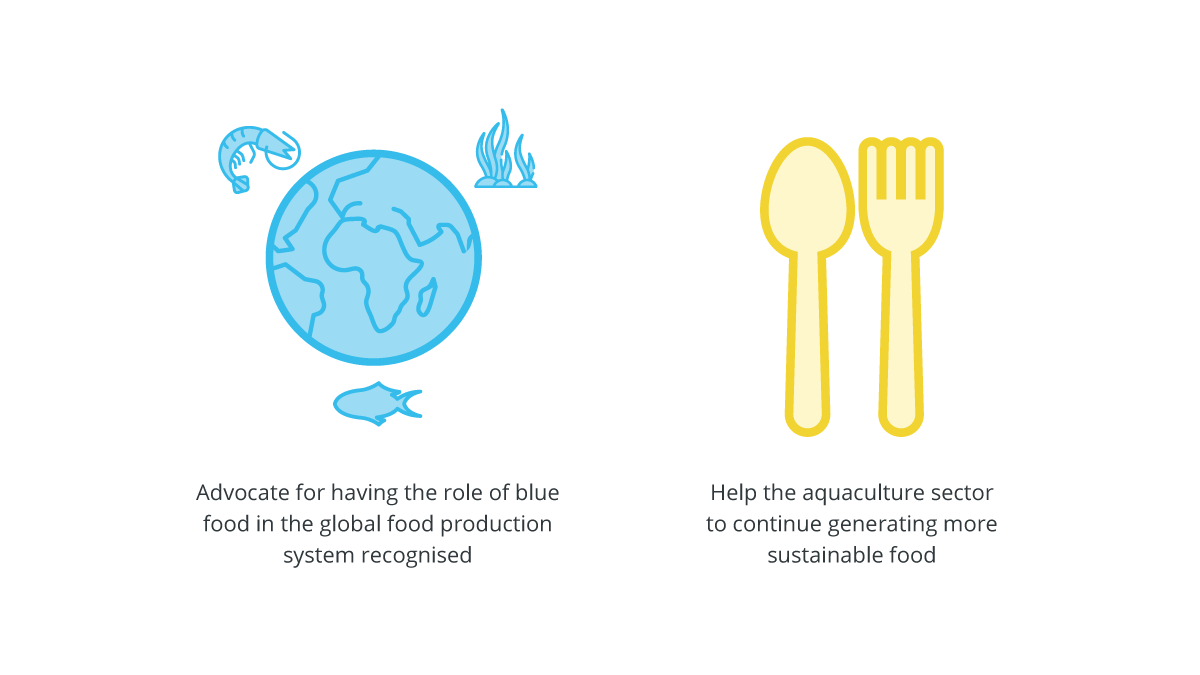The consequences of climate change are complex and far reaching and the following graphics help explain its impacts on the marine ingredients industry and the role the industry plays in global food security.
Oceans, the largest absorber of incoming solar radiation, are impacted by climate change
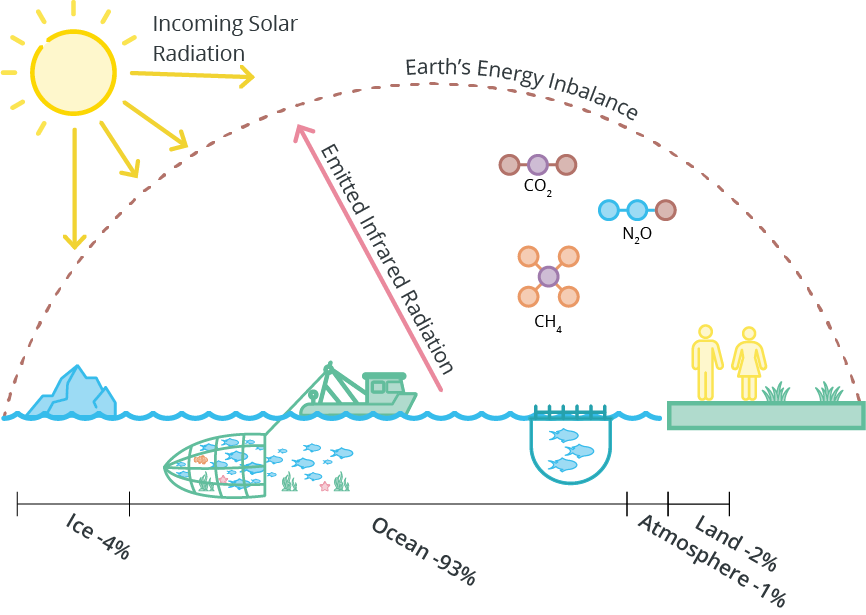
Five climate change drivers have mainly been impacting the marine ingredients industry
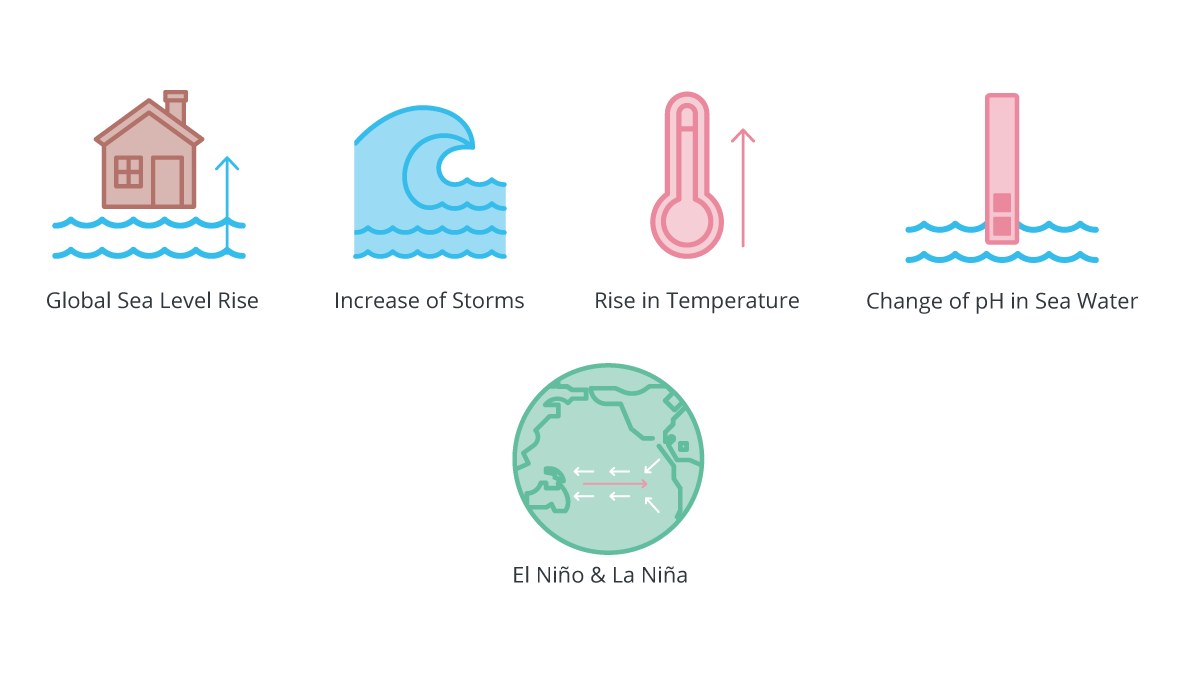
Fisheries and aquaculture can play a greater role in delivering nutrition…
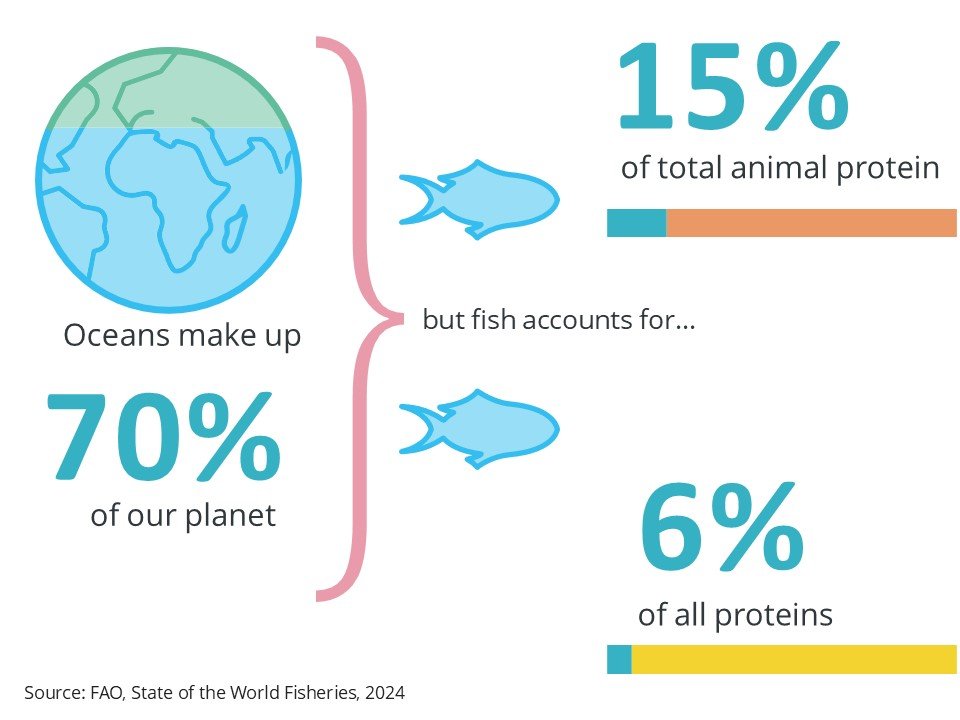
… by helping produce five times more farmed fish than it has been using raw material to produce fishmeal and fish oil
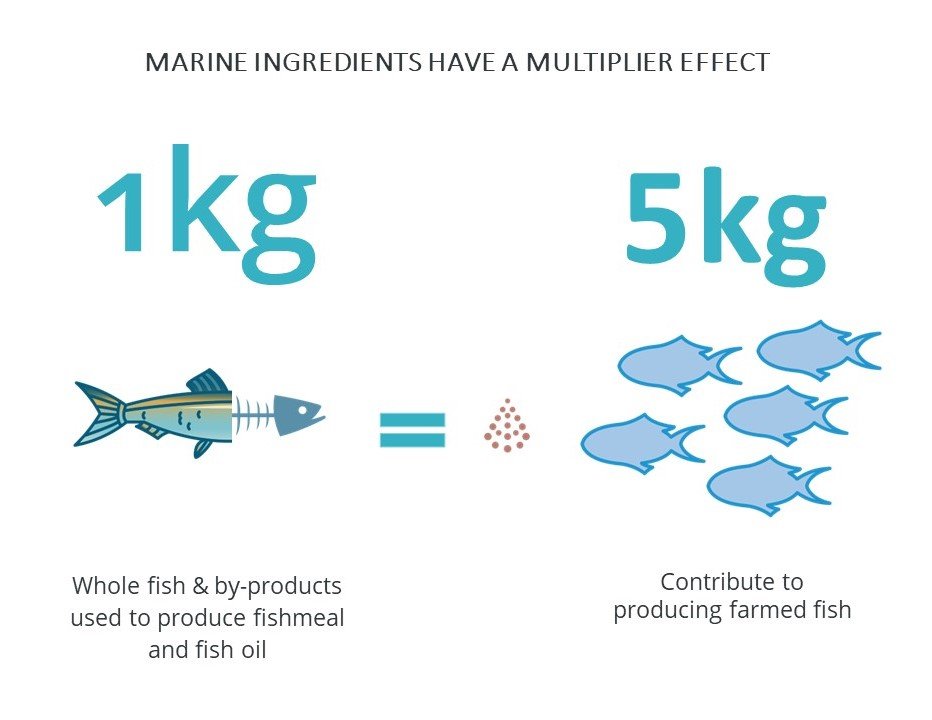
Source: Kok et al., 2020 [https://doi.org/10.1016/j.aquaculture.2020.735474]
The marine ingredients industry relies on a low carbon value chain, from fishing methods…
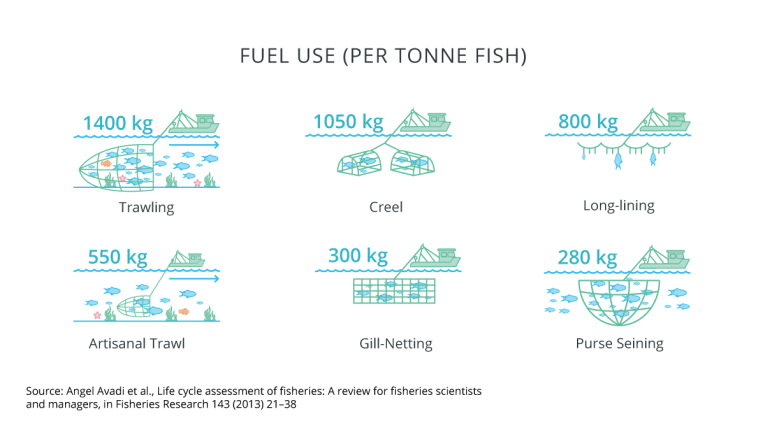
… to production and processing
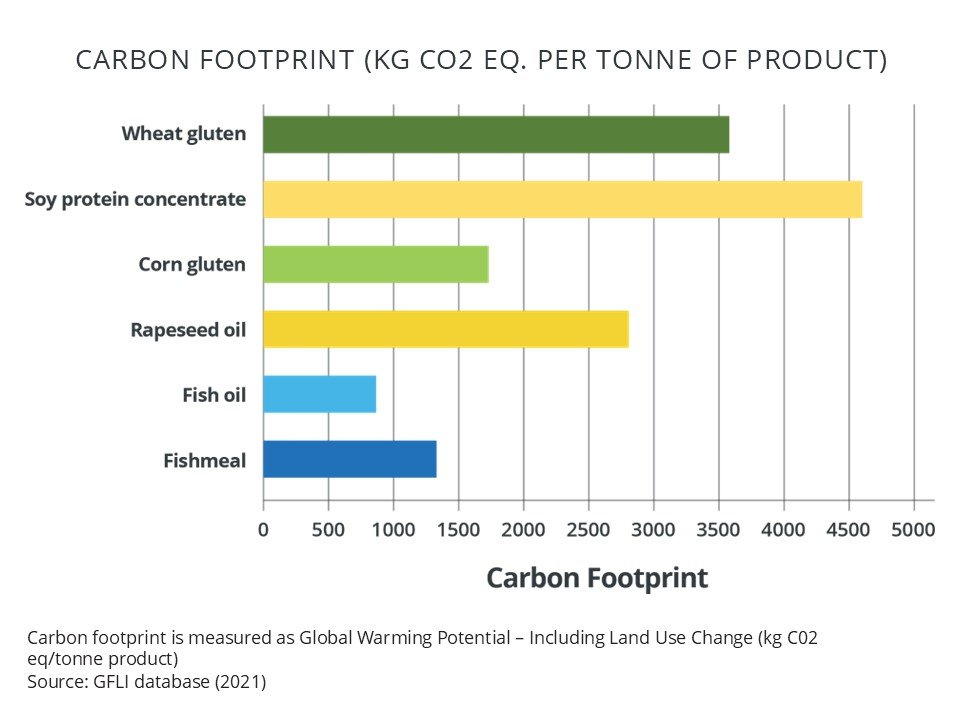
The use of by products reduces pressure on the oceans
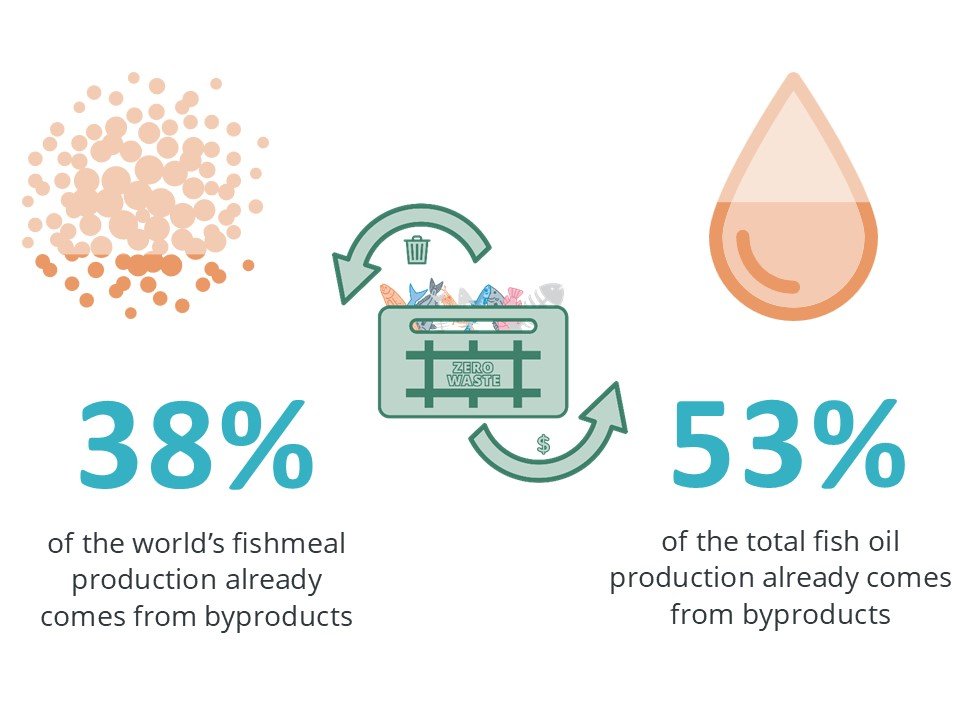
The marine ingredients industry supports the growth of aquaculture as the most effective way to produce protein
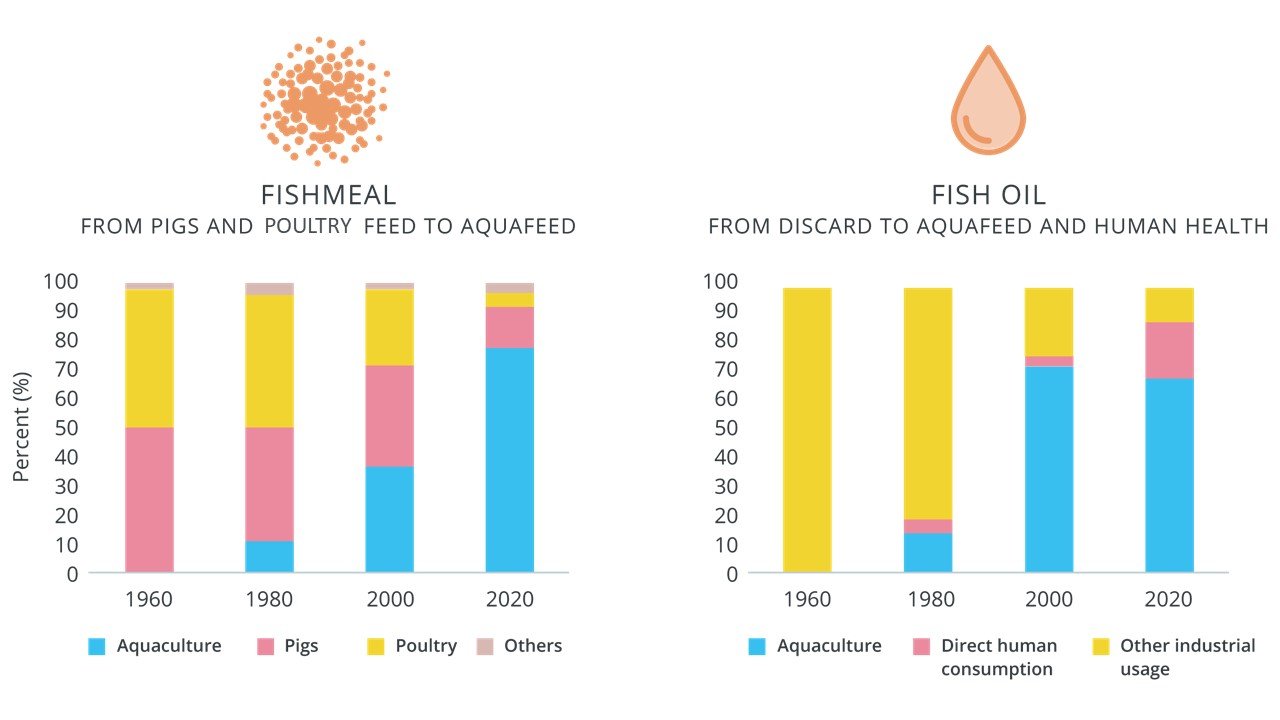
Action is already being taken by the marine ingredients industry
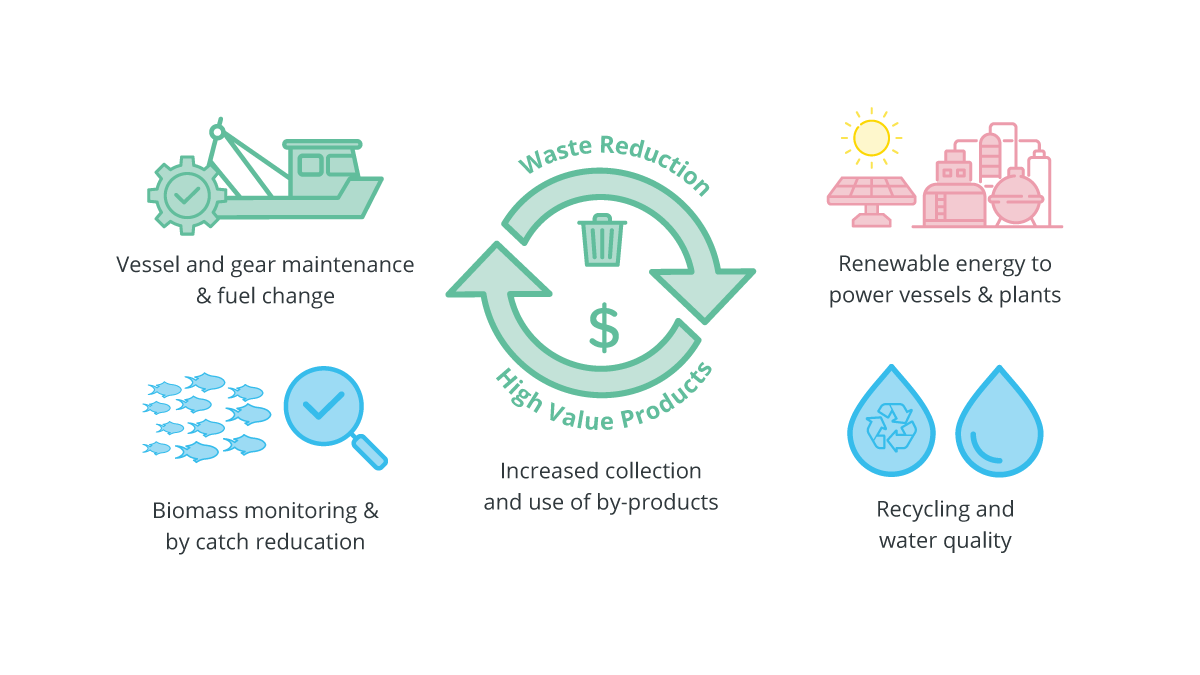
Since 2023, the industry has been contributing to a life cycle assessment database
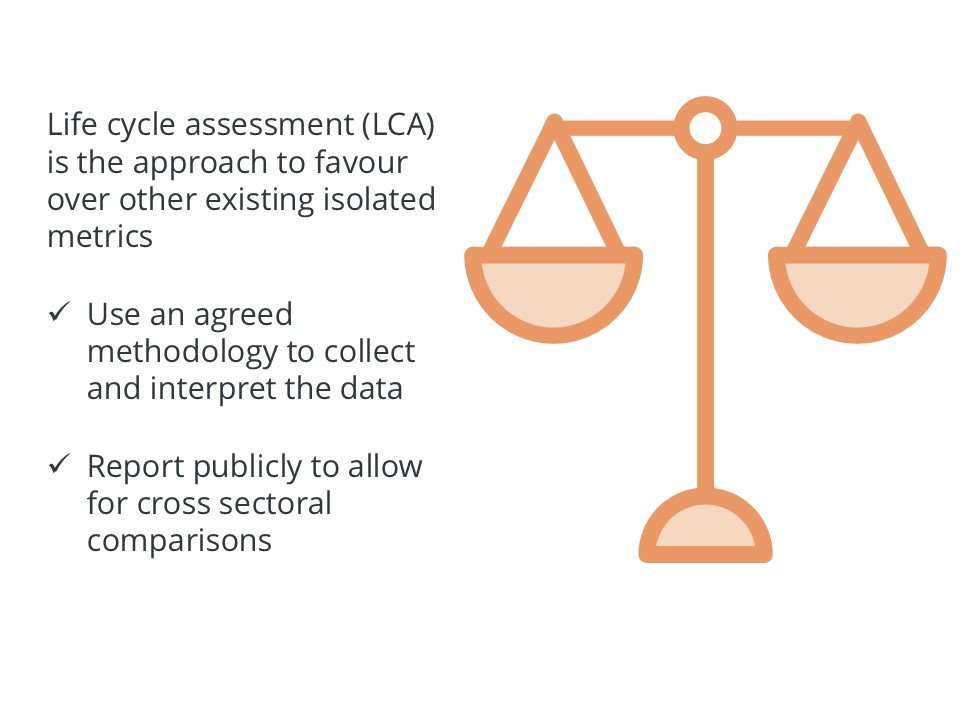
In June 2024, the leading scientific journal in fisheries science, Reviews in Fisheries Science and Aquaculture, published a review analysing the evolution of sustainability metrics for the marine ingredients sector. In this review, the authors look at the origin of those metrics, their assumptions and limitations and propose a path forward. Life cycle assessment (LCA) analyses are considered the most practical and robust option for use as a shared metric system.
IFFO encourages the industry to take further actions and reduce their production’s carbon footprint, while assessing impacts throughout the value chain
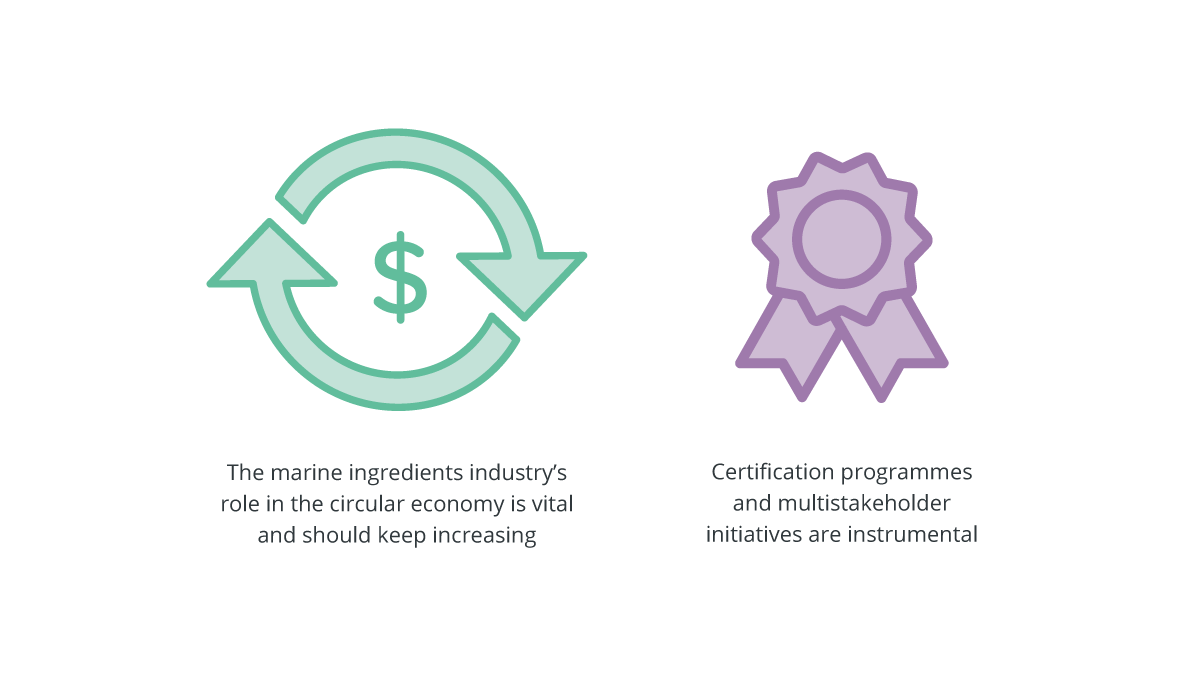
IFFO advocates for decision-makers to invest more in blue food systems
